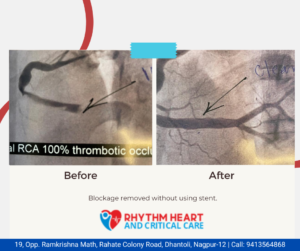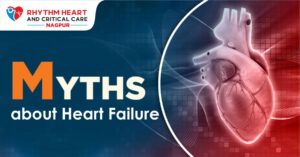Introduction
The keto diet, characterized by its high-fat, moderate-protein, and very low-carbohydrate content, has gained significant popularity in recent years for its potential benefits in weight loss and management of certain health conditions. However, its impact on heart health remains a topic of considerable debate. This article delves into the various aspects of the keto diet, examining its potential benefits and risks for heart health.
A new study says keto and keto-like diets may be linked to a higher risk for heart disease, raising LDL (“bad”) cholesterol levels and doubling the risk of cardiovascular events, like heart attacks and strokes
Understanding The Keto-Diet
The keto diet works by drastically reducing carbohydrate intake and replacing it with fat. This reduction in carbs puts your body into a metabolic state called ketosis. When this happens, your body becomes highly efficient at burning fat for energy. It also turns fat into ketones in the liver, which can supply energy for the brain.
How Does Keto-Diet Affect Your Body?
The keto diet can have both positive and negative effects on heart health, depending on how it’s implemented and individual health conditions. Here’s a summary of how the keto diet can affect your heart:
Positive Effects

1.Weight Loss: The keto diet is effective for weight loss, which can lower the risk of heart disease. Excess weight is a significant risk factor for cardiovascular conditions, so reducing body fat can help improve heart health.
2.Improved HDL Cholesterol: The diet often increases high-density lipoprotein (HDL) cholesterol, which is beneficial for heart health because it helps remove low-density lipoprotein (LDL) cholesterol from the bloodstream.
3.Reduced Triglycerides: The keto diet can lead to lower triglyceride levels, which is advantageous because high triglyceride levels are a risk factor for heart disease.
4.Better Blood Sugar Control: For those with type 2 diabetes or insulin resistance, the keto diet can help stabilize blood sugar levels. Better blood sugar control can reduce the risk of developing cardiovascular diseases.
Negative Effects

1.Increased LDL Cholesterol: Some individuals may experience an increase in low-density lipoprotein (LDL) cholesterol, which can elevate the risk of heart disease if levels become too high.
2.Potential Nutrient Deficiencies: The restrictive nature of the keto diet may lead to deficiencies in essential nutrients found in fruits, vegetables, and whole grains. These deficiencies can impact heart health negatively.
3.Possible Increase in Inflammatory Markers: There is some evidence suggesting that the keto diet might increase certain inflammatory markers. Chronic inflammation is associated with heart disease.
4.Sustainability Concerns: The diet’s restrictive nature can make it difficult to maintain long-term. Unsustainable diets can lead to unhealthy eating patterns that might affect heart health.
Safe ways to keto – and who should avoid it
According to research keto diet isn’t right for everyone. If you already have heart disease or high cholesterol, a past history of heart events or surgery, an eating disorder or are pregnant, a keto diet may not be safe for you.
If you are still thinking about starting a keto or keto-like diet — maybe to lose weight or for other reasons — take the following steps to do so safely:
Consult with your doctor or health care provider
1.Know your family history with heart disease
2.Address any additional risk factors you may already have, such as diabetes, high blood pressure, inactivity, poor sleep and smoking
3.Have your cholesterol levels monitored throughout
4.Keep the duration short (this type of diet should not be a long-term diet)
Balancing the Keto Diet for Heart Health
If you are considering the keto diet for its potential heart health benefits, it is essential to approach it with caution and balance. Here are some tips to help you make the keto diet more heart-friendly:
1.Choose Healthy Fats-Choose sources of healthy fats like avocados, nuts, seeds, and olive oil while limiting saturated and trans fats.
2.Incorporate Plenty of Vegetables-While the keto diet restricts many high-carb vegetables, it is important to include a variety of low-carb, nutrient-dense vegetables. These provide essential vitamins, minerals, and fiber that support heart health.
2.Monitor Cholesterol Levels-Regularly check your cholesterol levels, especially if you have a history of heart disease or high cholesterol. Work with your healthcare provider to monitor and manage any changes in your lipid profile.
3.Stay Hydrated-Proper hydration is crucial for overall health, including heart health. Drink plenty of water throughout the day, and consider electrolytes if you experience symptoms of the “keto flu,” which can include dehydration.
4.Limit Processed Foods-Avoid processed and packaged foods, which can be high in unhealthy fats, sodium, and additives. Focus on whole, unprocessed foods to maintain a balanced and heart-healthy diet.
5.Consult a Healthcare Professional-Before starting the keto diet, consult with a healthcare professional, particularly if you have existing health conditions or concerns about heart health. A registered dietitian or nutritionist can help you tailor the diet to your specific needs and ensure it is safe for you.
Conclusion:
The keto diet can offer several benefits for heart health, including weight loss, improved HDL cholesterol levels, and reduced triglycerides. However, it also carries potential risks, such as increased LDL cholesterol levels and nutrient deficiencies. The key to making the keto diet work for your heart health lies in careful planning, choosing healthy fats, incorporating nutrient-dense vegetables, and monitoring your cholesterol levels.
As with any diet, individual responses can vary, and what works for one person may not work for another. It is essential to approach the keto diet with a balanced perspective and to seek guidance from healthcare professionals to ensure it supports your overall heart health.
If you’re curious to dive deeper into the science, practical tips, and everything related to the Keto diet, CLICK HERE to explore all the details you need to know! This comprehensive guide will help you understand how the Keto diet can transform your lifestyle, offering valuable insights and expert advice. Don’t miss out on this opportunity to learn more
For comprehensive information and expert guidance on heart-related queries, visit our website. Here, you’ll find valuable resources and insights from Dr. Manish Juneja, a leading cardiologist renowned for his expertise. Whether you’re seeking advice on treatment options, preventive measures, or general heart health tips, our website offers a wealth of knowledge tailored to your needs. Don’t hesitate to explore our content and connect with our experts to ensure you’re well-informed and empowered to take charge of your heart health. Visit now for more details and support.







